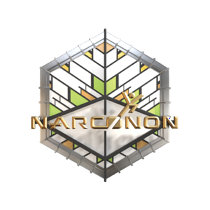Recovery From Opioid Addiction is Possible

Having an active or former addict in the family can have a huge impact on everyone involved. Some of the ways it can affect families are:
Emotional Strain. Addicts surround themselves with emotional turmoil. As addiction progresses, the addict may grow numb to the chaos surrounding them, leaving the rest of the family to deal with the stress and anxiety the addict is unable to confront.
- Fear and worry: Family members often fear for the addict’s health and safety.
- Anger and resentment: The addict’s behavior can cause anger and resentment toward them.
- Guilt and shame: Family members may feel shame or guilt for not being able to “fix” the situation. They may fear damage to their reputation if it’s known there is an addict in their family.
- Isolation: Social activities may be limited due to embarrassment or shame
Life/Lifestyle Problems. Being close to a loved one who is addicted to drugs or alcohol can cause problems, not only for the addict but for everyone in the family. Financial strain due to theft, the cost of treatment, and healthcare often affect the rest of the family.
- Financial strain: Addiction can be expensive, draining family resources to support the habit or to pay for treatment.
- Unpredictable environment: The addict’s behavior can create an unstable and unpredictable home environment.
- Neglected responsibilities: The addict’s needs may overshadow the needs of other members of the family which can cause resentment.
- Strained relationships: Family dynamics can become strained due to arguments and tension.
Impact on Children. Children of addicts often display long-term effects from watching a family member’s behavior.
- Emotional and behavioral problems: Children may experience anxiety, depression, or act out due to the stress of the situation.
- Developmental delays: In extreme cases, children may be neglected and experience developmental delays.
- Increased risk of addiction: Children of addicts are more likely to develop addictions themselves.
It’s important to remember that while family dynamics certainly play a part in addiction, the family is not responsible for the addict’s behavior. The best option for family members struggling with loved ones who are addicted is to seek help for the addict. Getting the addict into treatment not only helps the addict but also gives the family time to heal. Family members should learn to set boundaries and prioritize their own well-being as well.

When your loved one returns from treatment the family can give support in many ways. Some of these are:
- Educate yourself: Learn about opioid addiction and the recovery process. This will help you understand the challenges your loved one is facing and how you can best support them.
- Be patient and understanding: Recovery is a journey, not a destination. There will be setbacks and challenges along the way. Be patient, understanding, and supportive.
- Focus on encouragement: Acknowledge their efforts and celebrate their successes, no matter how small.
- Listen without judgment: Provide a safe space for them to talk about their struggles without feeling judged or criticized.
- Offer practical help: Help with errands, chores, or childcare can take a burden off their shoulders and allow them to focus on recovery.
- Respect boundaries: Don’t enable past behaviors. If they relapse, gently remind them of their commitment to recovery and offer support to get back on track.
- Encourage healthy habits: Support them in developing healthy coping mechanisms to manage stress and triggers. This could include exercise, healthy eating, relaxation techniques, or hobbies.
- Support their treatment plan: Encourage them to attend support groups if they feel the need. You can even offer to accompany them if they feel comfortable.
- Take care of yourself: Supporting someone in recovery can be emotionally draining. Make sure to take care of your own physical and mental health so you can be the best support system for them. Consider joining a support group for friends and families of people with addiction.
A former opioid addict can experience a mix of emotions and physical sensations as they work toward healing. Here’s a breakdown of what it might be like:
Physical:
- Post-acute withdrawal syndrome (PAWS): Even after the initial withdrawal subsides, PAWS can linger for months or even years. This can cause fatigue, trouble sleeping, cravings, and difficulty concentrating.
- Increased sensitivity to pain: Opiates can dull pain perception, so former addicts might experience a heightened sensitivity to pain they may have ignored while using.
Emotional:
- A rollercoaster of emotions: Recovery can lead to feelings of joy, relief, and hope for the future. However, it can also bring up negative emotions like anxiety, depression, and anger. These emotions may stem from past traumas or the challenges of rebuilding a life.
- Guilt and shame: Many addicts struggle with guilt and shame about their past behavior. Family members need to be aware that holding past incidents over their former addict’s head can increase their struggle with negative emotions.
- Fear of relapse: The fear of relapse is a constant battle for many former addicts. Support groups can help them develop coping mechanisms to manage these fears.
- Pride and accomplishment: Overcoming addiction is a tremendous feat. Former addicts may experience a deep sense of pride and accomplishment as they reach milestones in their journey.
Social:
- Isolation and loneliness: Rebuilding trust with friends and family takes time. Some former addicts may feel isolated or lonely, especially if they’ve distanced themselves from loved ones during their addiction.
Overall, recovery is a challenging but rewarding process. It takes time, patience, and a strong support system. There will be good days and bad days, but with continued effort, a former addict can build a healthy and fulfilling life.
Remember, you are not alone in this. There are many resources available to help you support your loved one on their road to recovery.
If you or someone you know are struggling with addiction please reach out. Narconon is standing by ready to help. Everyone deserves a happy, healthy, and successful life and Narconon has been helping people create that for over 50 years. Let us help you, too.


